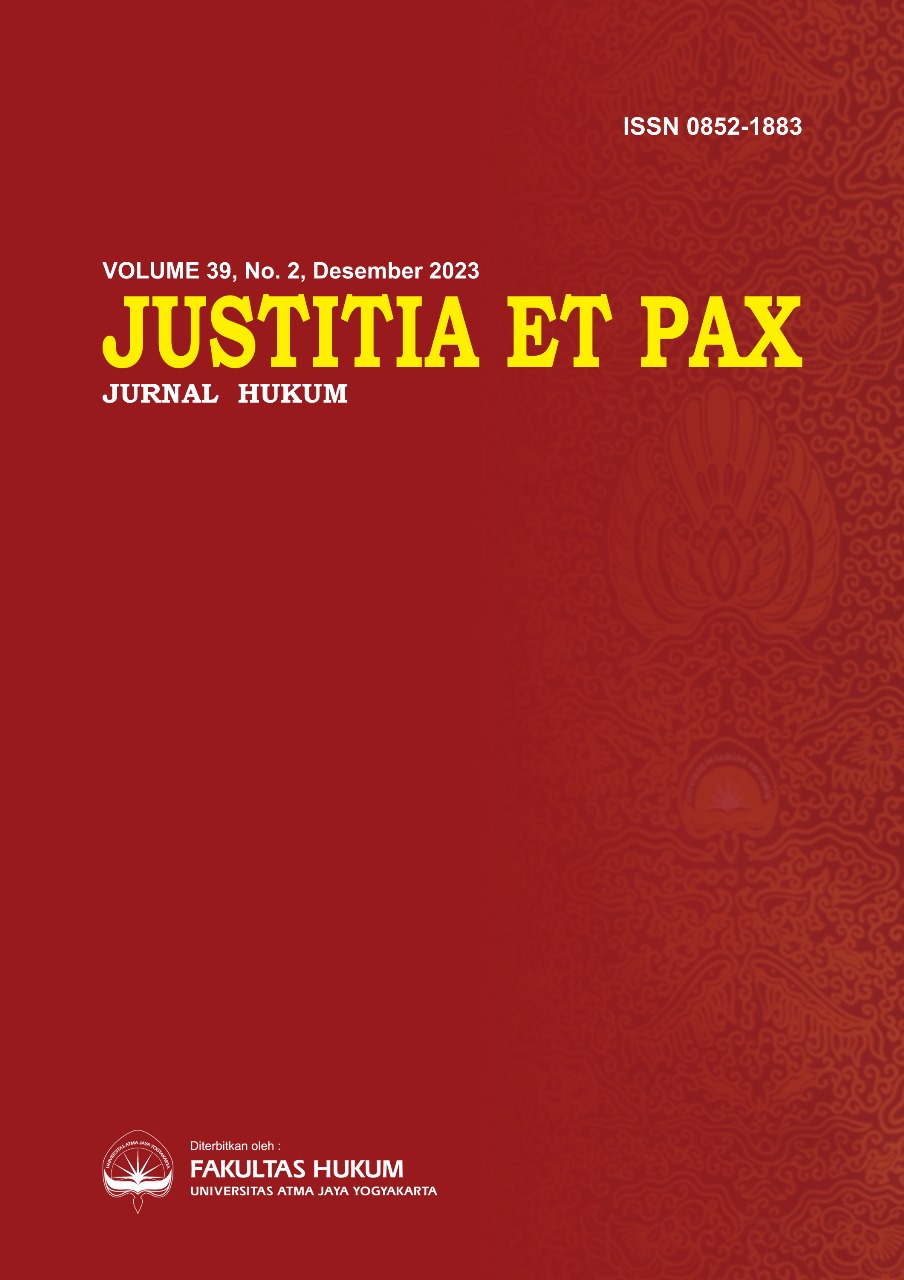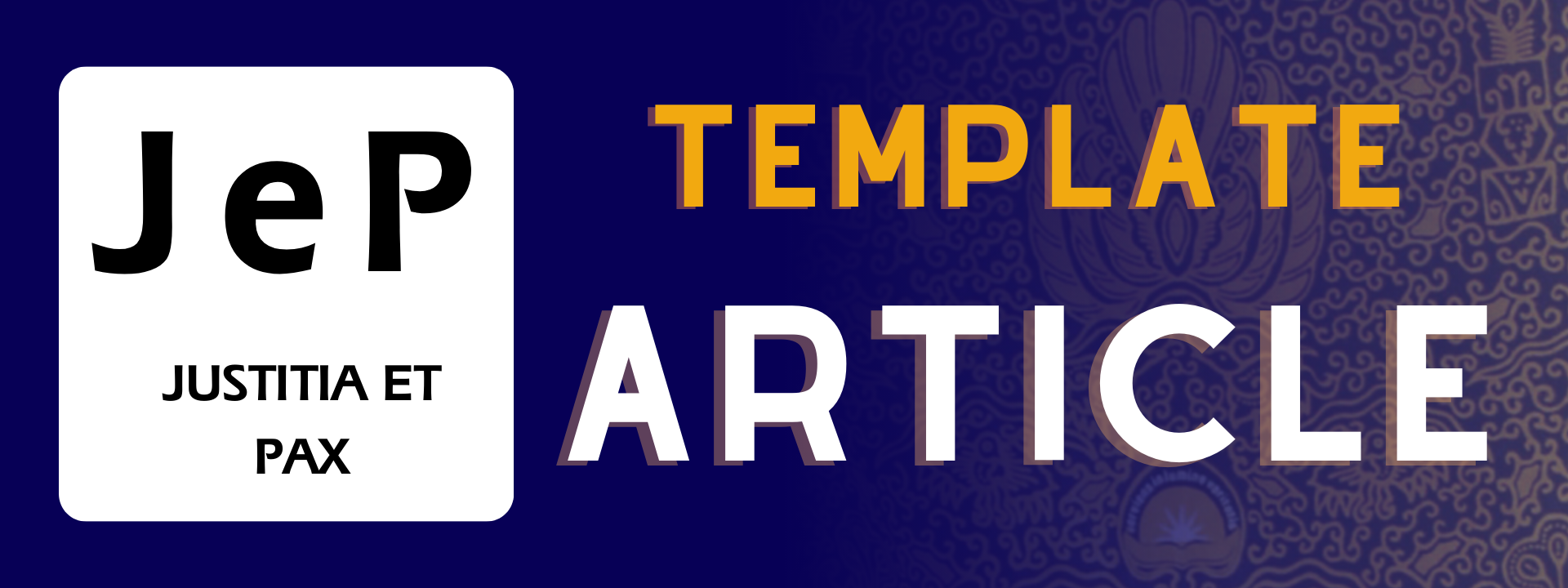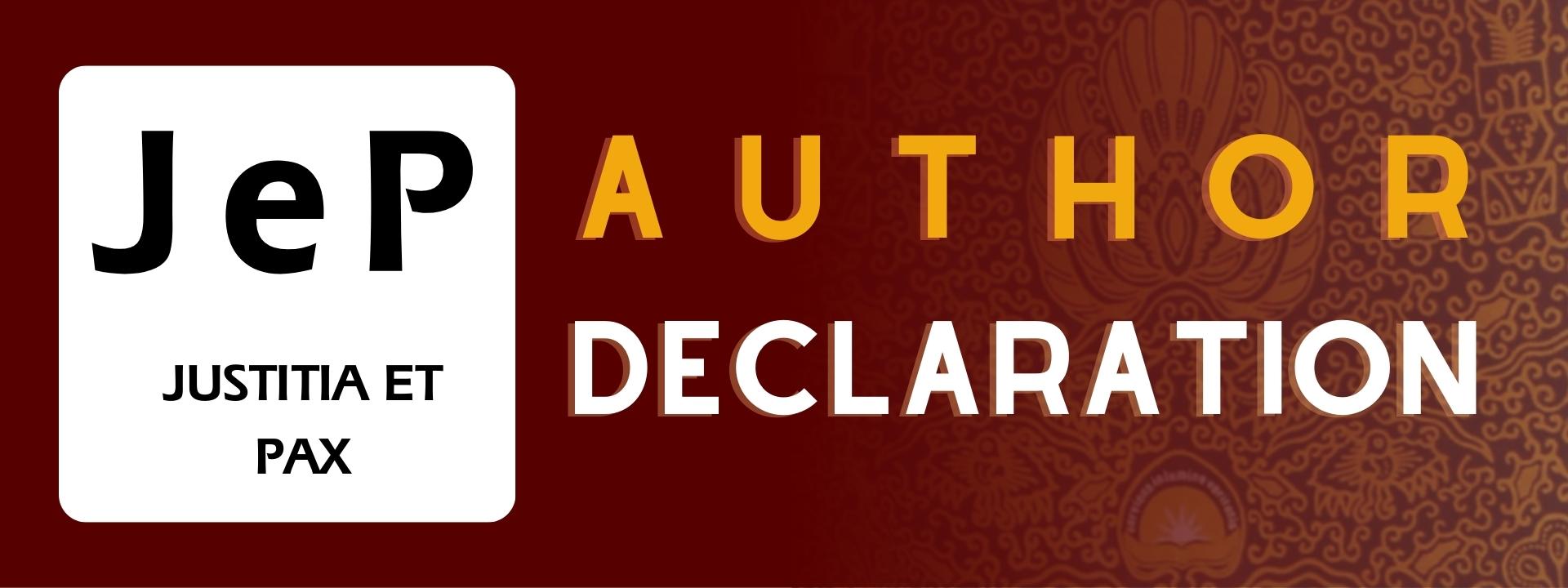PROBLEMATIKA HAK UNTUK DILUPAKAN DALAM UNDANG-UNDANG INFORMASI DAN TRANSAKSI ELEKTRONIK (PERSPEKTIF HAM DAN TRANSPARANSI PUBLIK)
DOI:
https://doi.org/10.24002/jep.v39i2.6927Keywords:
Electronic Transactions, Information, Law, Right To Be ForgottenAbstract
The rapid use of the internet in Indonesia as part of the world community has created dynamics and problems, in the field of information law and electronic transactions as well as human rights, and also related to one's privacy. The government holds the power to regulate the new world, namely cyberspace for internet users in Indonesia. The right to be forgotten is a person's right that must be protected by the state. In this case, through Law No. 19 of 2019 concerning Electronic Transactions and Information. The right to be forgotten in relation to those who are reported on or whose data is stored in public institutions in relation to perpetrators of criminal acts, victims of criminal acts, or related to news of criminal acts can be both positive and negative if it is misused. Someone who is published in the public space that he was once a victim or perpetrator of a crime certainly has the right to be forgotten so that he can improve himself without the shadow of a dark past. On the other hand, public transparency still requires information to be accessed for certain news. For example, criminal acts of corruption. Bearing in mind human rights and public transparency regarding the classification of who is allowed and who is not allowed to use this right, it must be strictly regulated, for example, criminal acts of corruption.
References
Buku
A., Prakoso, 2017, Pengantar Ilmu Hukum, Lakbang Presindo, Surabaya.
Charlesworth, A., Data Privacy in Cyberspace: Not National vs International but Commercial vs Individual, dalam L. Edwards L and C Waelde, 2000, Law and the Internet: A Framework for Electronic Commerce, Second Edition, Hart Publishing, Oxford.
Darrell, Keith B., 2009, Issues in Internet Law: Society, Technology and the Law, Fifth Edition, Amber Book, Washington.
Fen Lim, Yee, 2007, Cyberspace Law: Commentaries and Materials, Second Edition, Oxford University Press, New York.
Marzuki, P. M., 2008, Pengantar Ilmu Hukum, Prenada Media Group, Jakarta.
Pusat Pembinaan dan Pengembangan Bahasa, 1999, Kamus Besar Bahasa Indonesia/Tim Penyusun Kamus Pusat Pembinaan dan Pengembangan Bahasa, Balai Pustaka, Jakarta.
Susilo, I. B., 2003, Kompilasi Instrumen Internasional HAM Berikut Ratifikasi dalam Peraturan Perundangundangan di Indonesia, Pusat Studi Hak Asasi Manusia HAM, Univ. Surabaya.
Voigt, P., and A. Von dem Bussche, 2017, The General Data Protection Regulation (GDPR): A Practical Guide, First Edition, Springer International Publishing, Cham.
Wacks, Raymond, 2013, Privacy and Media Freedom, Croydon, Oxford.
Jurnal
Abdullahi Saulawa, Mu’azu, “Cyberpornography: an Analysis of the Legal Framework”, Global Journal of Politics and Law Research, Vol. 3, No. 2, 2015.
Binti Mohamed, Duryana, “The Privacy Right and Right to be Forgotten: The Malaysian Perspectives”, Indian Journal of Science and Technology, Vol. 9, No. 1, 2016.
Bleler, A., “Consumer Privacy and The Future of Data-Based Innovation and Marketing”, International Journal of Research in Marketing, Vol. 37, No. 3, 2020.
Christianto, Hwian, “Revenge Porn sebagai Kejahatan Kesusilaan Khusus: Perspektif Sobural”, Jurnal Veritas et Justitia, Vol. 3, No. 2, 2017.
De Keseredy, Walter, “Critical Criminological Understandings of Adult Pornography and Woman Abuse: New Progressive Directions in Research and Theory”, International Journal for Crime and Social Democracy, Vol. 4, No. 4, 2015.
Fabbrini, Federico dan Edoardo Celeste, “The Right to Be Forgotten in the Digital Age: The Challenges of Data Protection Beyond Borders”, German Law Journal, Vol. 21, 2020.
Ghafur, Jamaludin, ”Menggugat Putusan Mahkamah Konstitusi Tentang Pencalonan Mantan Narapidana Dalam Pemilu”, Justitia et Pax, Vol. 35, No. 2, 2019.
Hartanto, “Meaningfull Justice Decision of Grant Funding Criminal Corruption Cases”, Pakistan Journal of Criminology, Vol. 15, No. 4, 2023.
Nugraha, R. A., “Perlindungan Data Pribadi dan Privasi Penumpang Maskapai Penerbangan Era Big Data”, Mimbar Hukum, Vol. 30, No. 2, 2018.
Patria Setyawan, Vincentius, “Asas Legalitas dalam Perspektif Filsafat Hukum”, Justitia et Pax, Vol. 37, No. 1, 2021.
Rahmadani, Karunia Fitri, dan M. DarinArifMu’allifin, “Analisis Yuridis Pengaturan Hak Untuk Dilupakan (Right To Be Forgotten)Dalam Undang-Undang Nomor 19 Tahun 2016 Tentang Perubahan Atas Undang-Undang Nomor 11 Tahun 2008 Tentang Informasi Dan Transaksi Elektronik”, Legacy: Jurnal Hukum, Vol. 3 No. 1, 2023.
Satyanegara, N., et.al., “Perlindungan Data Pribadi di Indonesia dalam Perdagangan Elektronik (E-Commerce)”, Diponegoro Law Journal, Vol. 9, No. 2, 2020.
Sida, Noer, ”Hak Mantan Narapidana Untuk Turut Serta Dalam Pemerintahan”, Justitia et Pax, Vol. 34, No. 2, 2018.
Warren, Samuel D. dan Louis D. Brandeis, ”The Right to Privacy”, Harvard Law Review, Vol. 4, No. 5, 1890.
Hasil Penelitian
Ayu D., Ananthia, 2019, Perlindungan Hak Privasi atas Data Diri di Era Ekonomi Digital, Hasil Penelitian, Pusat Penelitian dan Pengkajian Perkara, dan Pengelolaan Perpustakaan Kepaniteraan dan Sekretaris Jenderal Mahkamah Konstitusi, Jakarta.
Guadamuz, Andrés, 2017, Developing a Right to be Forgotten, Hasil Penelitian, EU Internet Law: Internet Law Regulation and Enforcement, Switzerland.
Hu, H., 2011, Detecting and Resolving Privacy Conflict Forcollaborative Data Sharing in Online Social Networks, Hasil Penelitian, Association for Computing Machinery, New York.
Zeller, Bruno, 2019, The Right To Be Forgotten-The Eu and Asia Pacific Experience (Australia, Indonesia, Japan, and Singapore), Research Series, Faculty of Law University of New South Wales, Australia.
Internet
Maulana, Lucky, “Berapa pengguna internet di Indonesia per 2022? Berikut Datanya”, https://www.fortuneidn.com/tech/luky/berapa-pengguna-internet-indonesia-per-2022-berikut-datanya, diakses 27 Desember 2023.
Notonagoro, “Hak dan Kewajiban Warga Negara Indonesia dengan UUD 45”, https://www.mkri.id/index.php?page=web.Berita&id=11732, diakses 7 Februari 2023.
Pane, Beby, “Hak Untuk Dilupakan di Tengah Keabadian Digital”, https://www.balairungpress.com/2020/01/hak-untuk-dilupakan-di-tengah-keabadian-digital/, diakses 6 Februari 2023.
Peraturan Perundang-Undangan
Undang-Undang Dasar RI Tahun 1945.
Undang-Undang RI Nomor 11 Tahun 2008 tentang Transaksi dan Informasi Elektronik (Lembaran Negara Tahun 2008 Nomor 58)
Undang-Undang RI Nomor 19 Tahun 2016 tentang Perubahan Atas Undang-Undang Nomor 11 Tahun 2008 tentang Transaksi dan Informasi Elektronik (Lembaran Negara Tahun 2016 Nomor 251)
Undang-Undang RI Nomor 39 Tahun 1999 tentang Hak Asasi Manusia (Lembaran Negara Tahun 1999 Nomor 165).
Surat Edaran Kapolri No. SE/2/II/202 tentang Kesadaran Budaya Beretika untuk Mewujudkan Ruang Digital Indonesia yang Bersih, Sehat, dan Produktif.
Downloads
Published
Issue
Section
License

This work is licensed under a Creative Commons Attribution-NonCommercial-ShareAlike 4.0 International License.
Authors who publish with this journal agree to the following terms:
- Authors retain copyright and grant the journal right of first publication with the work simultaneously licensed under a Creative Commons Attribution License that allows others to share the work with an acknowledgement of the work's authorship and initial publication in this journal.
- Authors are able to enter into separate, additional contractual arrangements for the non-exclusive distribution of the journal's published version of the work (e.g., post it to an institutional repository or publish it in a book), with an acknowledgement of its initial publication in this journal.
- Authors are permitted and encouraged to post their work online (e.g., in institutional repositories or on their website) prior to and during the submission process, as it can lead to productive exchanges, as well as earlier and greater citation of published work (See The Effect of Open Access).

This work is licensed under a Creative Commons Attribution-NonCommercial-ShareAlike 4.0 International License.




















